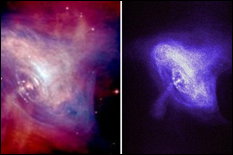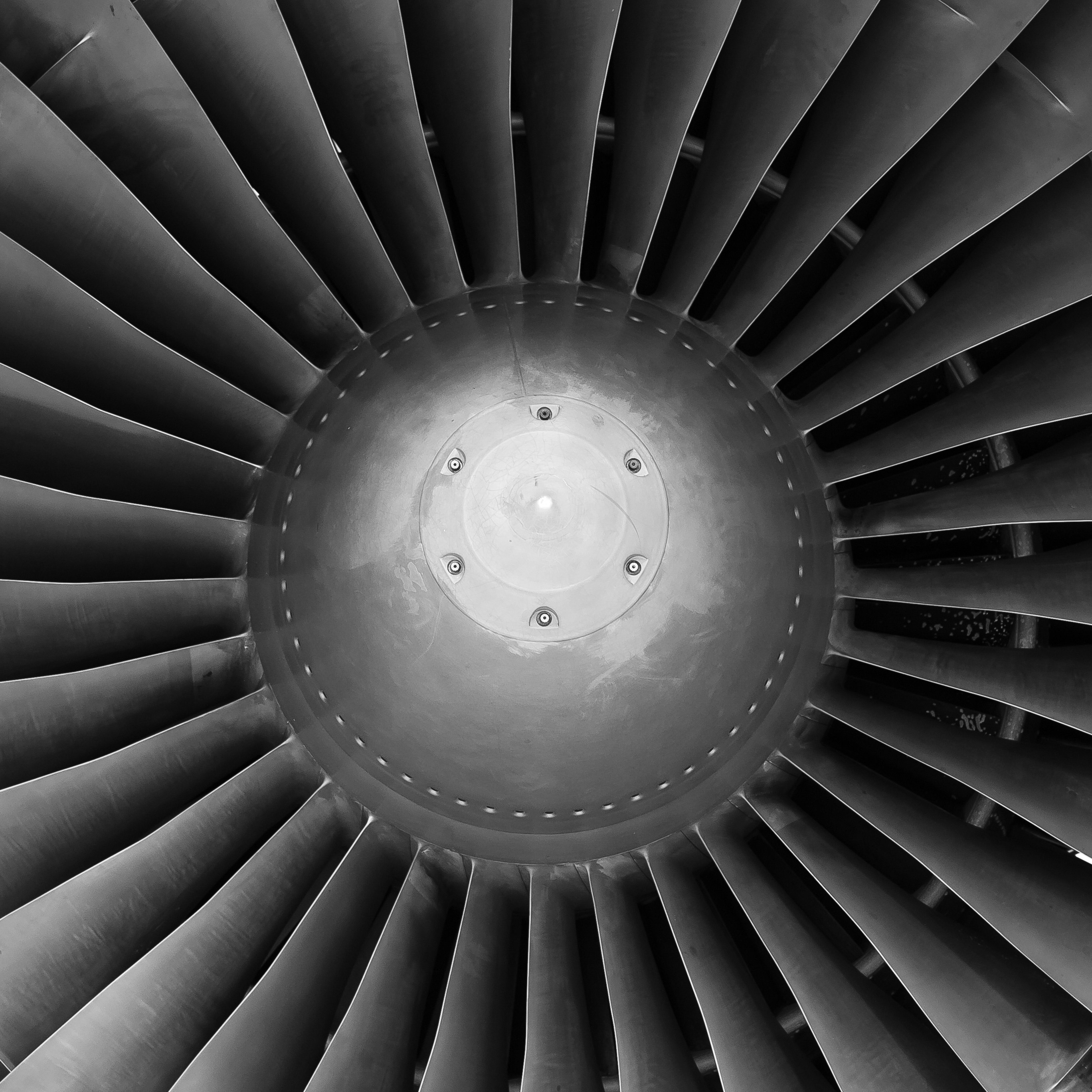News Story
Anderson and Pines Win Best Paper Award from AIAA

Left: The image of the Crab Nebula and Pulsar, in the optical (red) and X-ray (blue) portions of the spectrum superimposed. Right: The Crab Pulsar shown in only the X-ray portion of the spectrum. (NASA/CXC/ASU/J. Hester et al.)18
A research paper co-authored by Department of Aerospace Engineering doctoral candidate Kevin D. Anderson and Dean and Farvardin Professor of Aerospace Engineering Darryll Pines was selected as Best Paper in Guidance, Navigation and Control at the 2013 American Institute of Aeronautics and Astronautics (AIAA) Guidance, Navigation and Control Conference.
Their technical paper, "Experimental Validation of Pulse Phase Tracking for X-ray Pulsar Based Spacecraft Navigation," provided an experimental approach for using pulsars, rotating neutron stars that emit beams of radiation, for "autonomous, deep space navigation." While stars have been used as navigational aids for millennia, they tend to be stars that are constant in the light they emit. Pulsars, because they emit radiation throughout the electromagnetic spectrum and tend to have regular, stable, and periodic signals in addition to their relatively uniform distribution throughout the sky, could be used as a "natural celestial lighthouse system" for deep space navigation.
Anderson and Pines work outlines a model that could be used to time the arrivals of X-ray photons from a pulsar to a spacecraft and then use those measurements to determine a spacecraft's position and trajectory. This form of navigational could be used for autonomous deep space navigation or as a means for reducing errors when used in conjunction with other navigational systems.
Anderson and Pines' will be presented a Certificate of Merit in recognition of technical and scientific excellence during AIAA's Science and Technology Forum and Exposition (SciTech2014) held January 13-17, 2014 at the Gaylord National Hotel and Convention Center in National Harbor, MD.
Published December 12, 2013









